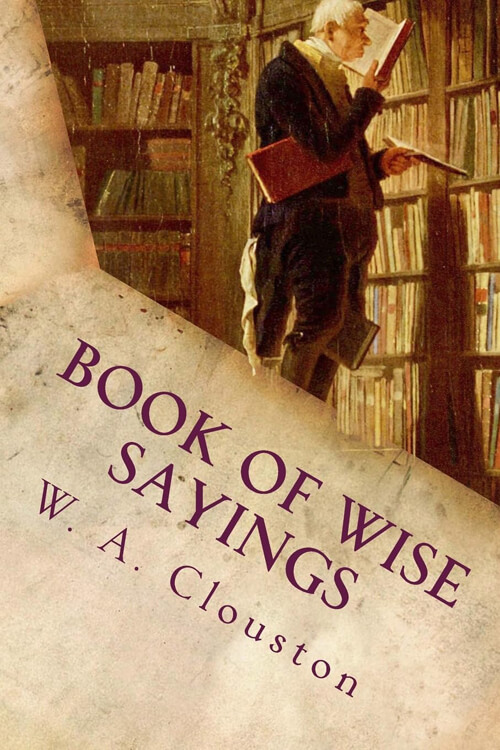
Book of Wise Sayings
They will say that their only use is to repeat them after some unhappy wight has “gone wrong.” When, for instance, a man has played “ducks and drakes” with his money, the fact at once calls up the proverb which declares that “wilful waste leads to woeful want”; but did not the “waster” know this well-worn saying from his early years downwards? What good, then, did it do him? Again, how many have benefited from the saying of the ancient Greek poet, that “evil communications corrupt good manners”?—albeit they had it frequently before them in their school “copy-books.” Are the maxims of morality useless, then, because they are so much disregarded?
When a man has reached middle age he generally feels with tenfold force the truth of those “sayings of the wise” which he learned in his early years, and has cause to regret, as well as wonder, that he had not all along followed their wholesome teaching. For it is to the young, who are about to cross the threshold of active life, that such terse convincing sentences are more especially addressed, and, despite the proverbial heedlessness of youth, there will be found many who are not deaf to this kind of instruction, if their moral environment be favorable. But, even after the springtime of youth is past, there are occasions when the mind is peculiarly susceptible to the force of a pithy maxim, which may tend to the reforming of one’s way of life. There is commonly more practical wisdom in a striking aphorism than in a round dozen of “goody” books—that is to say, books that are not good in the highest sense because their themes are overlaid with commonplace and wearisome reflections.
May we not find the “whole duty of man” condensed into a few brief sentences, which have been expressed by thoughtful men of all ages and in countries far apart?—such as: “Love thy neighbor as thyself,” “Do unto others as ye would that they should do unto you.” The chief themes of all teachers of morality are benevolence and beneficence; tolerance of the opinions of others; self-control; the acquisition of knowledge—that jewel beyond price; the true uses of wealth; the advantages of resolute, manly exertion; the dignity of labor; the futility of worldly pleasures; the fugacity of time; man’s insignificance. They are never weary of inculcating taciturnity in preference to loquacity, and the virtues of patience and resignation.
Read or download Book
W. A. Clouston
William Alexander Clouston (1843 – 23 October 1896) was a Scottish 19th-century folklorist from Orkney.
A Supplement to Alliborne’s Dictionary (1891, pp. 349–350), as quoted in Folklore, gives the following biographical information:
1843, at Stromness, Orkney Islands, of an old Norse family, in early life was engaged in commercial pursuits in Glasgow and London, but relinquished these to engage in journalism and literature; he edited several Scotch provincial newspapers, 1871-79, and is a writer for the Glasgow Herald, Evening Times, &c. He has given particular attention to Oriental fiction and folklore and contributed to Sir R. F. Burton’s “Supplemental Arabian Nights” analogs and variants of some of the tales in vols. I-III.
Bibliography
Popular Tales and Fictions their Migrations and Transformations, William Blackwood and Sons, Edinburgh and London, 1887
A Group of Eastern Romances and Stories, Privately Printed, 1889.
Arabian Poetry for English Readers
Flowers from a Persian Garden and Other Papers
Book of Wise Sayings: Selected Largely from Eastern Sources
The Book of Noodles: Stories Of Simpletons; Or, Fools And Their Follies
The Book of Sindibad, 1884, 300 privately printed copies.
‘Notes on the folk-lore of the Raven and the Owl,’ in Saxby, Jessie M.E. (1892). Birds of Omen in Shetland (Inaugural address to the Viking club, London, October 13, 1892)






